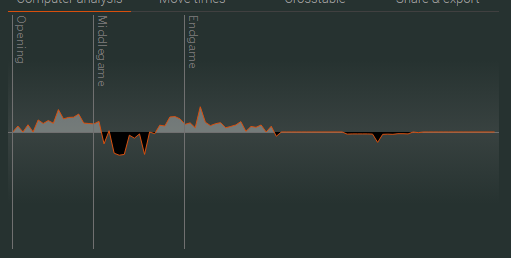Chess and it's rules has constantly changed. The last rule change was in 2014. So there is nothing wrong with change. Feels like every decade, something is new for the chess players. I wonder what's going to change in 2024.
So let's adapt to change, it's easier then resisting.
Chess is not like life, unless we fix the scoring.
When we die, we don't get scored for the way we died. We get scored for how we did our life. That person over all was a good person, even if nothing was accomplish after retirement. So his retirement years ended in a draw, but still got a score for his life.
Chess players both get a ½ point for drawing, but they also need to be scored for the game played. There will always be leaders and followers. So there is not draws in that either. Who lead the game is the bonus ½ point score that needs to be added to the present draws.
Nothing is removed, just complementing the game. Unless we live in a world of chess where complements do not exist. That would be poor sportsmanship.
youtu.be/rhZFfB5ih60
randalolson.com/2014/05/27/a-data-driven-exploration-of-the-evolution-of-chess-moves-captures-and-checkmates/#:~:text=Over%20time%2C%20the%20average%20chess,every%205%20ply%20in%202014.
So let's adapt to change, it's easier then resisting.
Chess is not like life, unless we fix the scoring.
When we die, we don't get scored for the way we died. We get scored for how we did our life. That person over all was a good person, even if nothing was accomplish after retirement. So his retirement years ended in a draw, but still got a score for his life.
Chess players both get a ½ point for drawing, but they also need to be scored for the game played. There will always be leaders and followers. So there is not draws in that either. Who lead the game is the bonus ½ point score that needs to be added to the present draws.
Nothing is removed, just complementing the game. Unless we live in a world of chess where complements do not exist. That would be poor sportsmanship.
youtu.be/rhZFfB5ih60
randalolson.com/2014/05/27/a-data-driven-exploration-of-the-evolution-of-chess-moves-captures-and-checkmates/#:~:text=Over%20time%2C%20the%20average%20chess,every%205%20ply%20in%202014.



